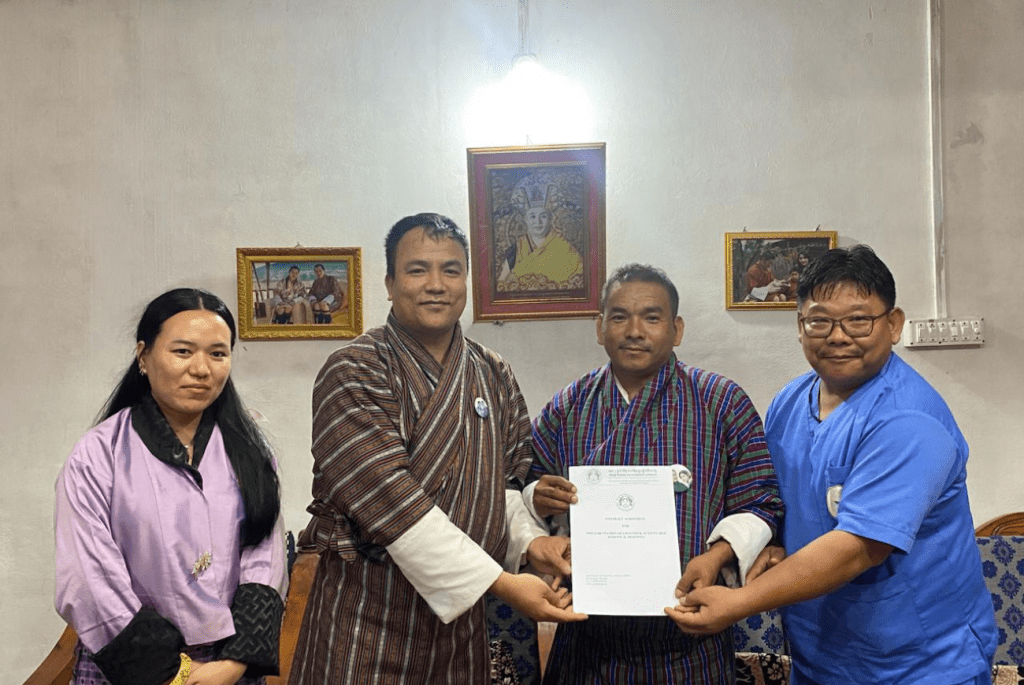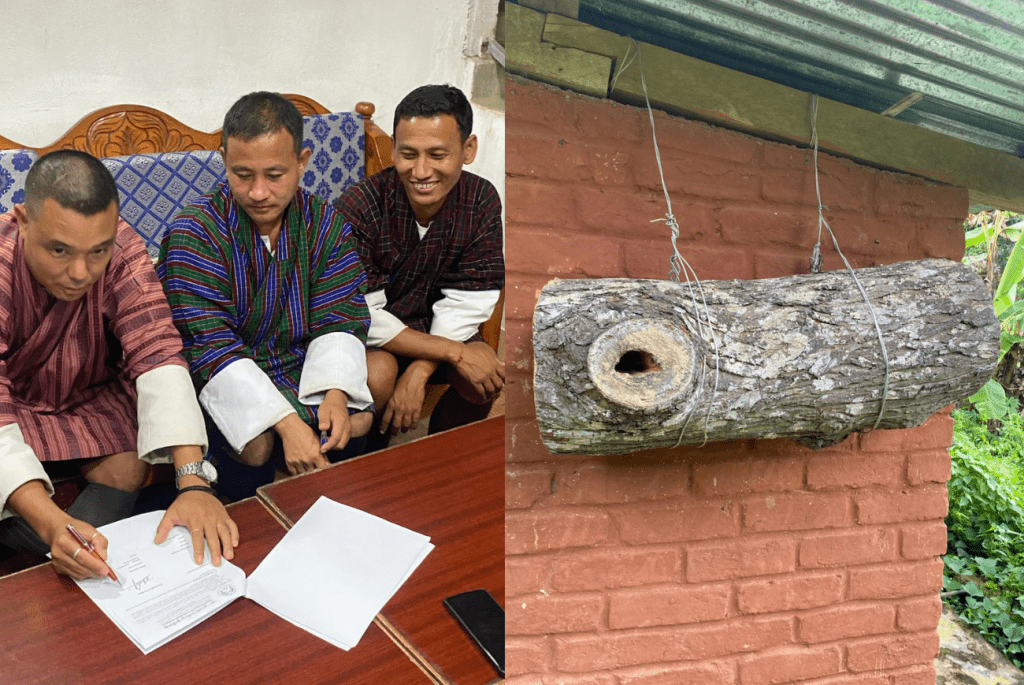The Royal Society for the Protection of Nature (RSPN), through its ongoing BMUV-IKI Project, has signed a Memorandum of Understanding (MoU) with the Local Government Offices of Tashiding and Tsendagang under Dagana Dzongkhag to implement key livestock-based community initiatives.
As part of this collaboration, fishery development and beekeeping activities will be introduced as sustainable livelihood options, aimed at enhancing community resilience and generating additional income.
The Livestock Sector under Dagana Dzongkhag will provide crucial technical support at the grassroots level, ensuring the successful and long-term implementation of these initiatives.
This collaboration highlights RSPN’s commitment to empowering communities through eco-friendly and meaningful livelihood opportunities, reinforcing the integration of conservation and development in Bhutan.
Dagana is recognized as one of the important habitats for the critically endangered White-bellied Heron (WBH), making community-based conservation and sustainable livelihood efforts in the area particularly significant.


Copyright © 2026 RSPN All Rights Reserved